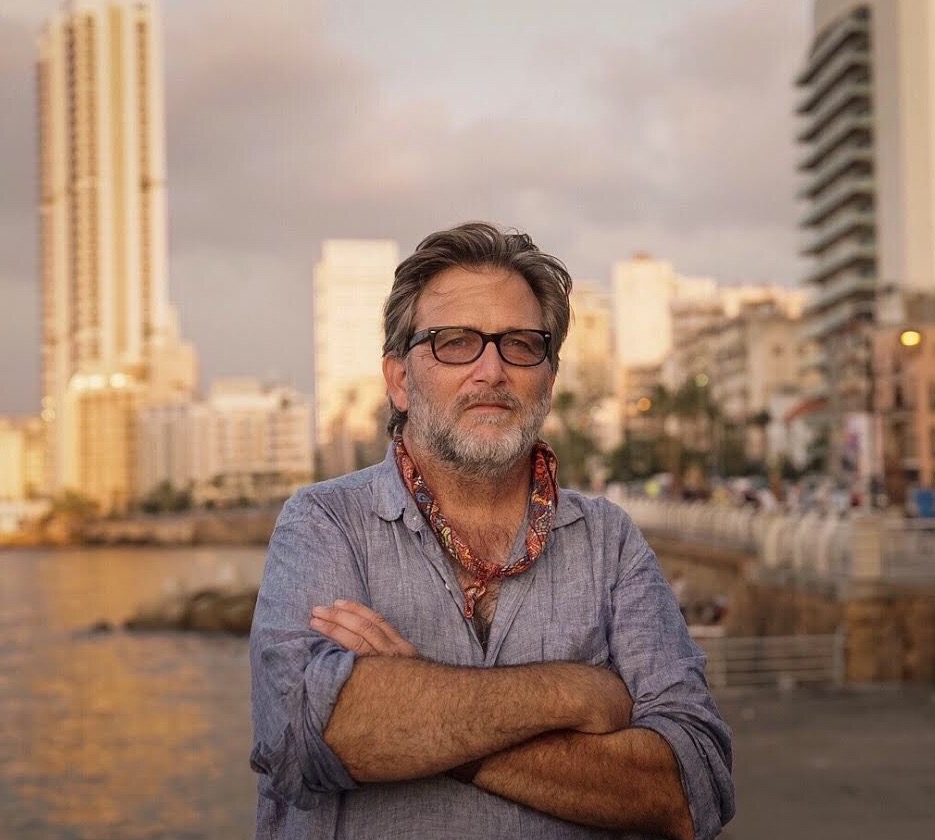The White Savior and the Waif: Listening to Humanitarianism’s Unheard

Humanitarianism has and always has had a listening problem.
A talk by historian and human rights expert Keith David Watenpaugh for the 2021 Hardt-Nickachos Lecture in Peace Studies.
In the summer of 2020, Black Lives Matter protests in the US and abroad brought this problem to the surface, raising questions about racial discrimination and structures of inequality in a particularly acute way. Similarly, this challenge was also raised within the context of the Nobel Peace Prize-winning humanitarian NGO, Médecins Sans Frontières (Doctors without Borders). One thousand current students and employees sent open letters decrying “dehumanizing” operations administered by a “privileged white minority.” One of those signatories, the British physician and chair of the UK’s MSF board, Javid Abdelmoneim, wrote:
“I have understood how the humanitarian aid sector at large is an industry that is a product of a paternalistic White Saviour complex bound close to the old and despicable colonial narrative of ‘the white man bringing civilisation to the savage’…This is reflected in today’s image of the European humanitarian movement bringing succour to needy people of Africa, for example, MSF language perpetuates those powerful colonial tropes: we go ‘on mission,’ I am an ‘expat,’ we have ‘beneficiaries’.”
It has not just been MSF facing criticism: Oxfam, Feed the Children, the International Rescue Committee, the agencies of the UN and many other humanitarian organizations have all come under pressure from within and without to confront the historical legacies of empire and colonialism and address what the Nigerian-American writer Teju Cole calls the “White Savior Industrial Complex,” in their day-to-day operations, media campaigns and collaborations with countries having poor human rights records.
The humanitarian industry that Abdelmoneim describes has remained largely unchanged and unexamined during the last century. What is different now, though, is that the voices of those facing abuse and discrimination can more easily be raised through forms of social and traditional media, the arts and literature. Equally, as the BLM movement and the MSF letter show, those voices have become difficult to silence.
In this talk, Watenpaugh draws from historical episodes, including the Armenian Genocide, and contemporary experiences in the wake of the Syrian Civil War, to asks how the tools of the humanities—history, storytelling and memoir—in particular can surface these voices. And he argues that that systematically recovering the voices of refugees, rape victims and genocide survivors in the study of humanitarianism must be a fundamental feature of efforts to create a more humane, human rights supporting and effective humanitarianism in the now.
About the Speaker
Keith David Watenpaugh is Professor of History and the Founding Director of the Human Rights Studies program at the University of California-Davis. He is a leading American historian of the contemporary Middle East, human rights and modern humanitarianism and an expert on genocide and its denial, and the role of the refugee and displaced peoples in world history.
Since 2013, he has directed an international multi-disciplinary research project to assist refugee university students and scholars fleeing the war in Syria. This project has garnered support from the Carnegie Corp. of New York, the Open Society Foundations and the Ford Foundation. He was recently awarded the Institute of International Education Centennial Medal for his efforts, which included the development and deployment of the “Article 26 Backpack — The Universal Human Rights Tool for Academic Mobility” in the Middle East.
He is the author of two books, “Being Modern in the Middle East: Revolution, Nationalism, Colonialism and the Arab Middle Class” (2006, 2012) and the award-winning “Bread from Stones: The Middle East and the Making of Modern Humanitarianism” (2015), and has published numerous articles in leading journals, including the American Historical Review, Perspectives on History, Social History, Journal of Human Rights, Humanity, International Journal of Middle East Studies, Chronicle of Higher Education, and Inside Higher Education. He has lived and worked in Syria, Turkey, Lebanon, Armenia, Iraq and Egypt and his writing has been translated in Arabic, Turkish, Persian, and German.
He is currently at work on a new book—“The White Savior and the Waif: Listening to the Unheard in the History of Humanitarianism”—that explores how historians, aid workers and humanitarian organizations can work to systematically recover the voices of refugees, IDPs, rape victims and genocide survivors in humanitarianism history as a way to create a more humane, non-discriminatory and effective humanitarianism in the now.
About the Hardt-Nickachos Lectures in Peace Studies
The Hardt-Nickachos Lectures in Peace Studies is an endowed lecture series that features leading scholars and practitioners whose work highlights humanity’s imagination of peace and efforts to construct peace in diverse locations, historical periods and in the contemporary moment. The lecture series aims to heighten faculty and student awareness of peace studies as an academic field of inquiry and its significance and relevance as an approach to engaging the most challenging problems of our age.
Past speakers have included Pankaj Mishra, Joseph Elder, Najeeba Syeed-Miller, Ira Chernus and Stanley Hauerwas.